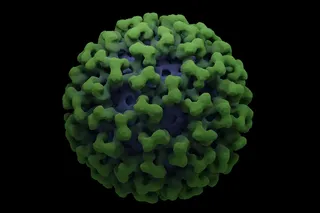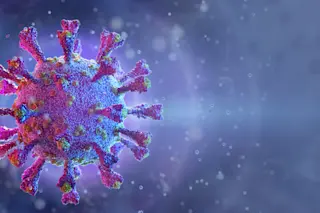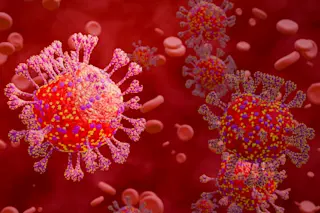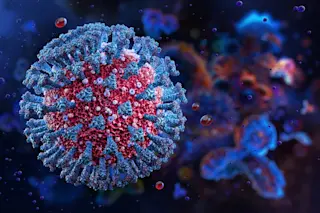It’s a mind-boggling piece of medical news: A genetic variant that’s commonly found in people of African descent raises the risk of HIV infection by about 40 percent, but also causes HIV-infected people to live longer. Researchers say the trait is extremely common because it used to have a beneficial effect; it protected people against a form of malaria that is now fairly rare.
The genetic variant may partially account for the high HIV rates in sub-Saharan Africa, where over 24 million people are currently living with the disease. While the differences in HIV prevalence in different parts of the world can be partly explained by different social conditions and sexual behaviour, scientists have long suspected that there may be genetic reasons why the virus is rife in certain communities [BBC News].
In the study, published in Cell Host & Microbe, researchers focused on a protein found on the surface of red blood cells that’s involved in provoking an immune response. This protein, called the Duffy antigen, is lacking in 60 percent of African-Americans and 90 percent of Africans [HealthDay News]. The absence of Duffy antigens protects against malaria, because certain species of malaria parasites latch on to the Duffy protein and use it as a gateway to enter red blood cells…. “If there is no Duffy there, the malaria parasite can’t get in,” said [researcher Robin] Weiss [San Francisco Chronicle].
Researchers aren’t yet clear on the mechanism by which the lack of Duffy antigens increases the risk of HIV infection, but they have a few theories. During an immune response, Duffy antigens create chemical messengers that summon white blood cells to fight an infection. Since those chemicals latch onto the same white blood cell proteins that are targeted by HIV, said Weiss, their absence in duffy-negative people may allow the virus to proceed unchecked [Wired News]. As for why HIV-infected patients with this genetic variant live longer, Weiss says it’s possible that since the white blood cells aren’t being summoned to the site of the infection, it may take longer for the HIV virus to spread throughout the body.
Image: iStockphoto













